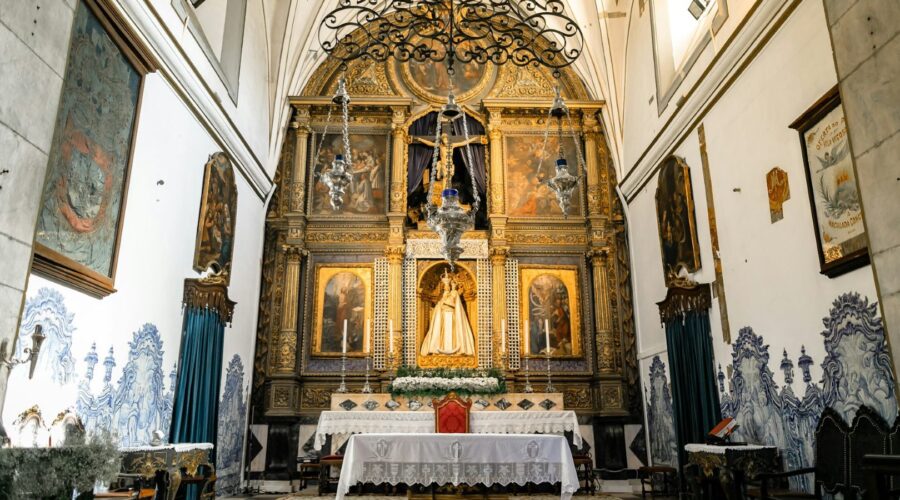Your cart is currently empty!
Discover the Origins and Enduring Legacy of the First Christian Church

The Foundation of Christianity
The Christian faith emerged in the 1st century AD, rooted in the teachings of Jesus Christ, a Jewish preacher from Nazareth. His life and message resonated with followers who embraced his teachings of love, compassion, and forgiveness.
The Jerusalem Church
The earliest Christian community was established in Jerusalem, the city where Jesus was crucified and resurrected. Led by Peter, James, and John, this church served as a hub for the first Christians, who gathered for prayer, fellowship, and the breaking of bread.
Spread and Expansion
As the Christian message spread throughout the Roman Empire, new churches were established in cities like Antioch, Ephesus, and Rome. Missionaries such as Paul and Barnabas played a pivotal role in establishing these churches, which grew rapidly despite facing persecution and opposition.
The Role of Paul
Paul, a former persecutor of Christians, became a fervent apostle and played a significant role in spreading the gospel to non-Jewish populations. His letters to various churches provided guidance on Christian doctrine and practice and helped unify the early church.
Church Organization and Structure
In the early centuries, the Christian church gradually developed a structure to meet the needs of its growing membership. Leaders emerged, including bishops, elders, and deacons, who oversaw the administration and spiritual guidance of local congregations.
Bishops and Elders
Bishops, also known as overseers, assumed responsibility for the spiritual and administrative leadership of individual communities. Elders, or presbyters, assisted bishops in teaching, pastoral care, and decision-making.
Deacons
Deacons played a vital role in providing practical support to the church, including distributing aid to the poor and caring for the sick.
Theology and Beliefs
The core beliefs of the early Christian church were based on the teachings of Jesus Christ and the writings of the apostles:
The Trinity
Christians believed in the Trinity, that God exists in three persons: Father, Son, and Holy Spirit.
The Incarnation
They affirmed that Jesus was fully God and fully human, sent by God to redeem humanity from sin.
Salvation and Forgiveness
Central to Christian belief was the concept of salvation through faith in Jesus Christ, who offered forgiveness of sins and eternal life.
Challenges and Persecution
The early Christian church faced numerous challenges and persecutions. The Roman Empire often viewed Christians as a threat to traditional religious practices and political authority. This led to intermittent waves of persecution, including the infamous Roman persecutions under emperors such as Nero and Diocletian.
Martyrdom and Resistance
Despite the threats, many Christians remained steadfast in their faith, even facing martyrdom. Their witness and unwavering commitment to their beliefs contributed to the spread of Christianity and strengthened the resolve of the church.
Constantine and the Rise of Christianity
In the early 4th century, a significant shift occurred with the rise of Emperor Constantine. Constantine converted to Christianity and granted religious freedom to Christians through the Edict of Milan. This marked a turning point in the history of the church, paving the way for its recognition and eventual dominance in the Roman Empire.
The Council of Nicea
Under Constantine’s patronage, the Council of Nicea was convened in 325 AD, where bishops from throughout the empire gathered to establish the Nicene Creed, a statement of Christian faith that affirmed the Trinity and the divinity of Jesus Christ.
Legacy and Impact
The legacy of the first Christian church remains profound and far-reaching:
Religious Influence
Christianity has become one of the largest religions globally, with over 2 billion adherents. Its teachings and practices have shaped the moral and ethical values of Western civilization.
Cultural Impact
Christian art, architecture, music, and literature have made significant contributions to human culture, leaving a lasting impression on society.
Social Impact
The charitable and humanitarian efforts of the church have played a crucial role in providing aid to the poor, sick, and marginalized. Christian values have influenced the development of healthcare, education, and social welfare systems.
Conclusion
The first Christian church was a dynamic and transformative movement that laid the foundation for one of the world’s most influential religions. From its humble beginnings in Jerusalem to its eventual spread throughout the Roman Empire, the church faced challenges and persecutions but emerged as a beacon of faith and a force for good in the world. Its legacy continues to shape societies and inspire individuals to this day.